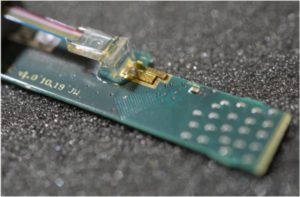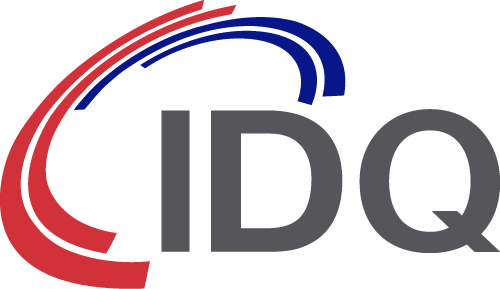Photonic Chip-based QKD achieves higher transmission speeds
In a research project led by the University of Geneva, IDQ has contributed to the development of a quantum key distribution (QKD) system based on integrated silicon photonics that can transmit secure keys at unprecedented speeds. The goal of this project is to show how the use of integrated photonics will provide compactness, low cost, and ease of integration as well as inroads to mass production.
QKD has already established itself as a trusted method of providing forward secrecy for key exchange over distance. Unlike classical key exchange security, which rely on mathematics, QKD relies on the laws of physics. Specifically, it leverages the core principles of quantum mechanics to generate a genuine source of entropy for key generation and the principle that observation causes perturbation to guarantee the integrity and confidentiality of the subsequent key exchange.
In recent years, QKD deployments are flourishing all over the world, notably in Europe through public initiatives, and in China which started building its own nationwide QKD network about a decade ago, identifying the technology as one its priority in their national strategy. On its side, ID Quantique, since 2007 when it launched its first commercial QKD systems, has deployed QKD networks and testbeds on all continents and has built one of the most sophisticated QKD network in South Korea, achieving unmatched scalability, usability, and interoperability.
Next generation QKD
This project is the result of a collaboration between researchers at the University of Geneva and two commercial partners: ID Quantique and Sicoya, a silicon photonics manufacturer headquartered in Berlin. The project team developed a solution that comprised a distributed feedback laser, photonic integrated circuits and a dispersion compensating fiber for transmission The random numbers were seeded by IDQ’s Quantis QRNG.
Low-loss, high-speed transmission, in a chip-based system

The experiment produced key generation and quantum bit error rates comparable to those of discrete components and fiber-based systems, demonstrating the feasibility of use within integrated QKD solutions. The transmitter proved to be practical, low-cost option and the low-loss receiver (manufactured by the Institute of Photonics and Nanotechnology in Milano, Italy) was polarization-independent.
In this research project, demonstrations rely on the use of superconducting nanowire single-photon detection (SNSPDs) and InGas SPADS, range of products already mature and commercialized by IDQ.
The next step is to analyse the feasibility of integrating all components on chip, for mass production.
IDQ is constantly working at the forefront of technology to enhance the value for its end-users and further deploy QKD technology on large scale networks at a lower price. In 2021, IDQ launched its 4th generation of QKD system, the XG series – a more compact and robust solution that fits needs to easily deploy QKD both on backbone and metro networks.
In February 2023, a team from UNIGE and ID Quantique reported single-photon detectors with unprecedented performance increasing their speed by a factor of twenty. This innovation, to be discovered in the journal Nature Photonics, makes it possible to achieve unprecedented performances in quantum key distribution offering new perspectives for ultra-secure data transfer.
Quantum communications are a game-changer for today’s cybersecurity already and, as quantum computing technology advances and the risk of seeing stored data stolen and decrypted is higher every day, businesses failing to adopt quantum security will likely see their data confidentiality significantly compromised.


